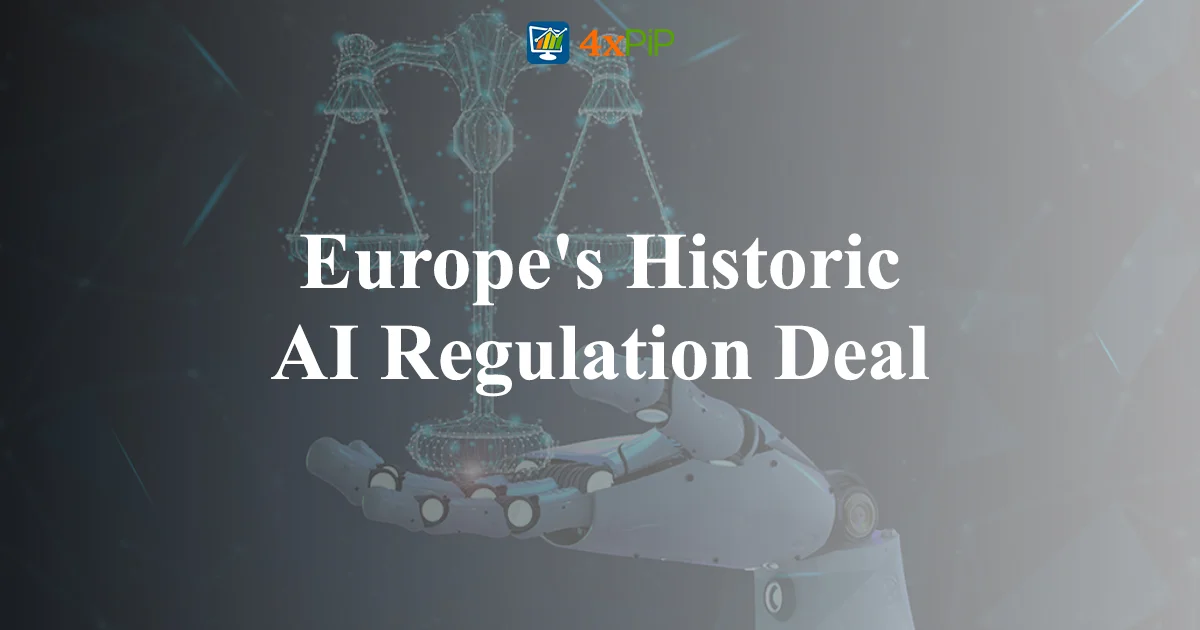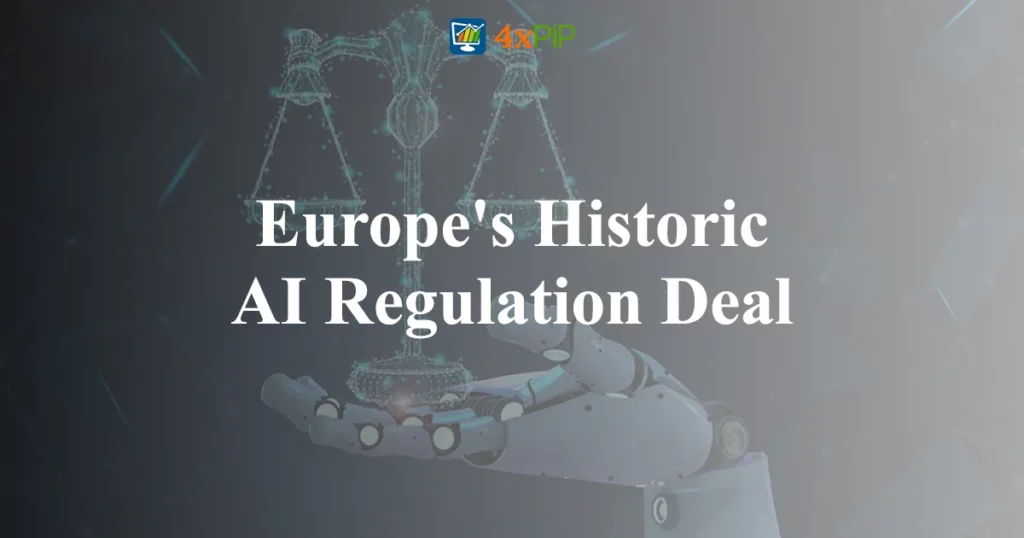Europe has taken a historic step in shaping the future of artificial intelligence (AI) with a landmark regulatory deal reached on Friday. This pivotal agreement, reached after nearly 15 hours of negotiations following a marathon 24-hour debate, positions the European Union (EU) as a global standard setter in AI governance. As we delve into the details of this agreement, traders and AI enthusiasts must stay informed about these regulatory changes. For those navigating the world of trading, tools, and EAs, consider exploring 4xPip’s promotions and offerings at [email protected].
Transparency Obligations for AI Systems:
The accord mandates that foundation models like ChatGPT and general-purpose AI systems (GPAI) comply with transparency obligations before entering the market. This includes preparing technical documentation, adhering to EU copyright laws, and providing detailed summaries of the content used for training.
Stringent Requirements for High-Impact Models:
High-impact foundation models carrying systemic risks face additional requirements, including model evaluations, mitigation of systemic risks, adversarial testing, reporting serious incidents to the European Commission, ensuring cybersecurity, and disclosing energy efficiency details.
Government Use of Biometric Surveillance:
Governments can only use real-time biometric surveillance in public spaces when addressing specific crimes, preventing threats like terrorist attacks, or searching for individuals suspected of serious crimes.
Prohibited Practices and Consumer Rights
The agreement explicitly bans cognitive behavioral manipulation, untargeted scraping of facial images, social scoring, and biometric categorization systems inferring sensitive personal details. Authorities grant consumers the right to launch complaints and receive meaningful explanations, imposing fines for violations ranging from 7.5 million euros or 1.5% of turnover to 35 million euros or 7% of global turnover.
Critiques and Concerns:
While hailed as a historic achievement by European Commissioner Thierry Breton, the deal faces criticism from business groups like DigitalEurope, citing additional burdens for companies. Privacy rights advocates at European Digital Rights express reservations about the regulation’s stance on live public facial recognition.
Summary:
Europe’s groundbreaking AI regulation deal positions the continent as a trailblazer in governing the rapidly evolving field of artificial intelligence. In the coming days, as stakeholders hash out the details, experts anticipate that these regulations will establish a global precedent, potentially shaping the approaches of other nations to AI governance. The authorities plan to enforce the legislation early next year, with expectations of enforcement two years thereafter.





